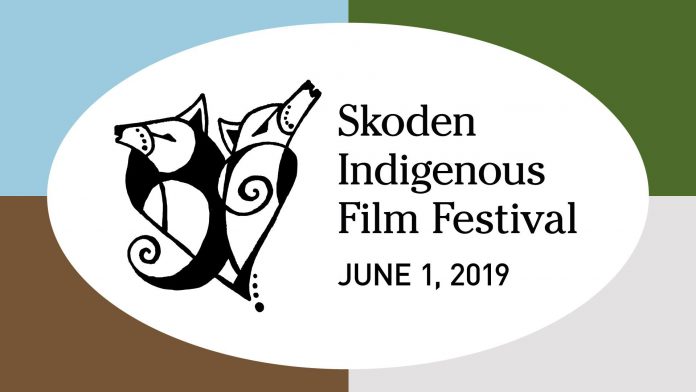By: Alison Wick, Arts Editor
Update: An earlier version of this article, including the printed version, included a mistake that the festival is on Friday, June 1. The correct date is Saturday, June 1. This has been changed in the online exclusive version of the article.
Skoden [skoh-den] action 1. Indigenous slang term for “let’s go then” 2. Attitude and rallying cry.
The Skoden Indigenous Film Festival is happening for the first time ever this Saturday, June 1, and there are many reasons you should be excited. The first is the incredible, unparalleled list of films that Carr Sappier (Wolastoqiyik) and Grace Mathisen, SFU School of Contemporary Art film students and festival directors, have gathered for their inaugural festival. The second is really everything else.
The variety of filmmakers being showcased at the festival is striking, and emphasizes the diversity of Indigenous film, even just in the Northwest. The festival will feature two shorts programs, an awards ceremony, and a special after event. The programs are divided based on appropriateness, with a family screening (Stoodis First) at 1 p.m. and an adult screening (Stoodis Next) at 4 p.m. Since none of the films are rated, it’s a helpful and unique way to make the one-day festival accessible to community members of all ages.
Among this programming are a few notable names. Hunkpapa Lakota filmmaker Dana Claxton’s 2009 film Her Sugar is? and Michif filmmaker Amanda Strong’s 2018 stop-motion animation Biidaaban (The Dawn Comes) are featured in Stoodis Next. Helen Haig Brown (Tsilhqot’in), who co-directed the recent VIFF and TIFF favourite Edge of the Knife (SG̲aawaay Ḵʹuuna) film told entirely in Haida, is also included in the Adult screening. Haig Brown’s film being screened is ?E?ANX (The Cave), also told entirely in an Indigenous language, this time in Tsilhqot’in. This only scratches the surface of the talent that Skoden has gathered for audiences, as the festival also features young and upcoming artists including some local highschool students.
The festival was born out of Sappier and Mathisen’s aspiration to both highlight and support Indigenous voices in film. As stated in their press release, they “wanted to create a platform that supported Indigenous filmmakers who were telling their stories the way they wanted to tell them.” Sappier and Mathisen explain that “the idea for the festival came out of [them] talking about what [they] could do to build a stronger Indigenous presence at SFU and amplify the voices of Indigenous people in our community.”
Not only will the festival be hosted at SFU, but it is in fact a part of the SCA’s summer programming. Woodwards is frequently used as a festival venue, and so Skoden’s explicit association with the school is very deliberate. It’s important that the school promotes and supports events like the festival. Skoden is not just about creating space for filmmakers to show their work, but making space within the SFU community, and the public, to see it and have active discussions.
As the festival is named, the showcase is a declaration and rallying cry to celebrate, experience, and learn from the powerful and unique Indigenous film being made in the Northwest. The festival will begin with a welcoming ceremony and witness, and will take place on the unceded territories of the Musqueam, Sḵwxwú7mesh, and Tsleil-Waututh Peoples.
Skoden? Stoodis!
(Stoodis [stew-dis] Action/response 1. Indigenous slang term for “let’s do this.”)
Tickets to each screening are on a sliding scale and can be purchased through eventbrite. After this article was written, The Peak was able to interview Sappier and Mathisen over email. They talk about how the festival got started, the naming process, how children are the future! The exclusive conversation can be found online the-peak.ca.
A full list of all the films can be found on their SCA and facebook event pages.





[…] Indigenous Film Festival promises to showcase some of the best in cinema,” which can be found online and in […]